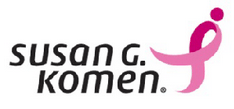Susan G. Komen Statement on U.S. Preventive Services Task Force Mammography Screening Guidelines
April 21, 2015CHARLESTON, SC – Susan G. Komen®, the world’s largest breast cancer organization, issued the following statement on the U.S. Preventive Services Task Force (USPSTF) call for public comment on updated mammography screening recommendations.
The USPSTF today reiterated its 2009 position that routine mammography should begin at age 50, rather than 40, for women at average risk for breast cancer.
This statement is attributable to Komen President and CEO Judith A. Salerno, M.D., M.S.
“As an advocacy organization, we believe that all women should be able to make informed decisions about breast cancer screening with their health care providers and develop a schedule that is right for them, without fear of economic or other barriers to their care.
Because USPSTF recommendations are often used by insurance companies and government programs to determine coverage, we are concerned that women and their health care providers will be deterred from screening that might be appropriate. Worse yet, the recommendations may cause women under 50 to delay paying attention to their breast health and breast cancer risk.
This would be especially troublesome for younger women (who are often diagnosed with aggressive forms of breast cancer), and for African American women who are often diagnosed with aggressive forms of the disease at younger ages than white women.
Just as breast cancer treatment has evolved from the “one-size-fits-all” approach of past years to more personalized and targeted therapies, breast cancer screening is evolving as well, and any screening recommendations must account for an assessment of an individual’s risk. It is becoming increasingly clear that age-based recommendations cannot be our only standard.
We will be watching and participating in the USPSTF comment period, mindful of these concerns.
The benefits of early detection and early effective treatment of breast cancer are well established. We agree that mammography is imperfect, which is why Komen has invested more than $33 million in research to develop more precise early detection methods such as blood and tissue tests. Until those are available, mammography is the most widely available and cost effective test that we have.
We encourage women of every age to discuss their personal and family health history with their health care providers.”
.













